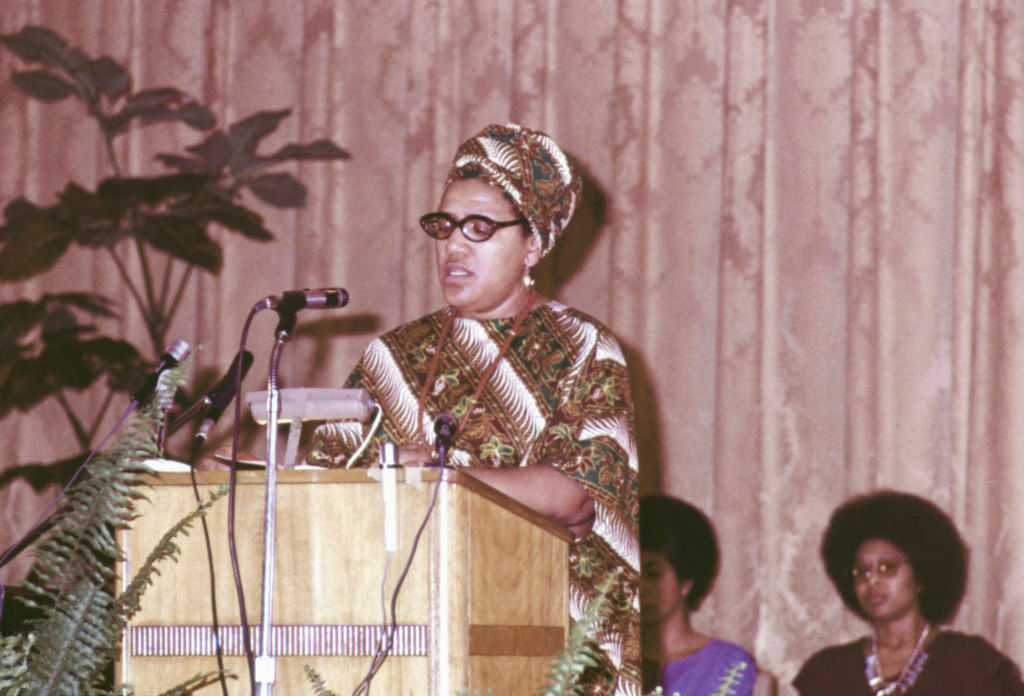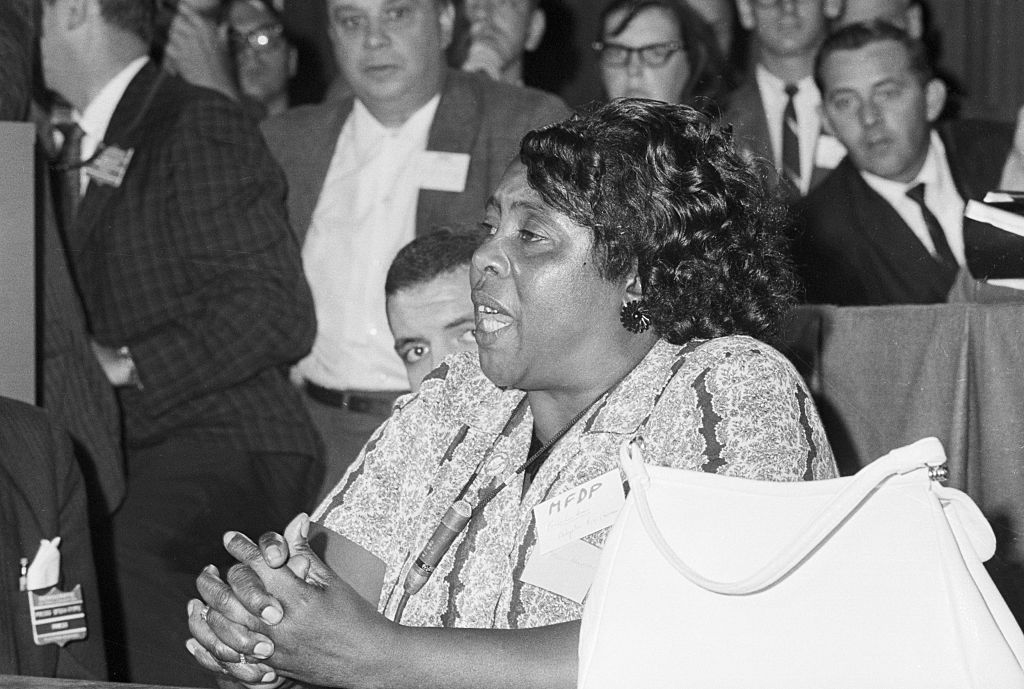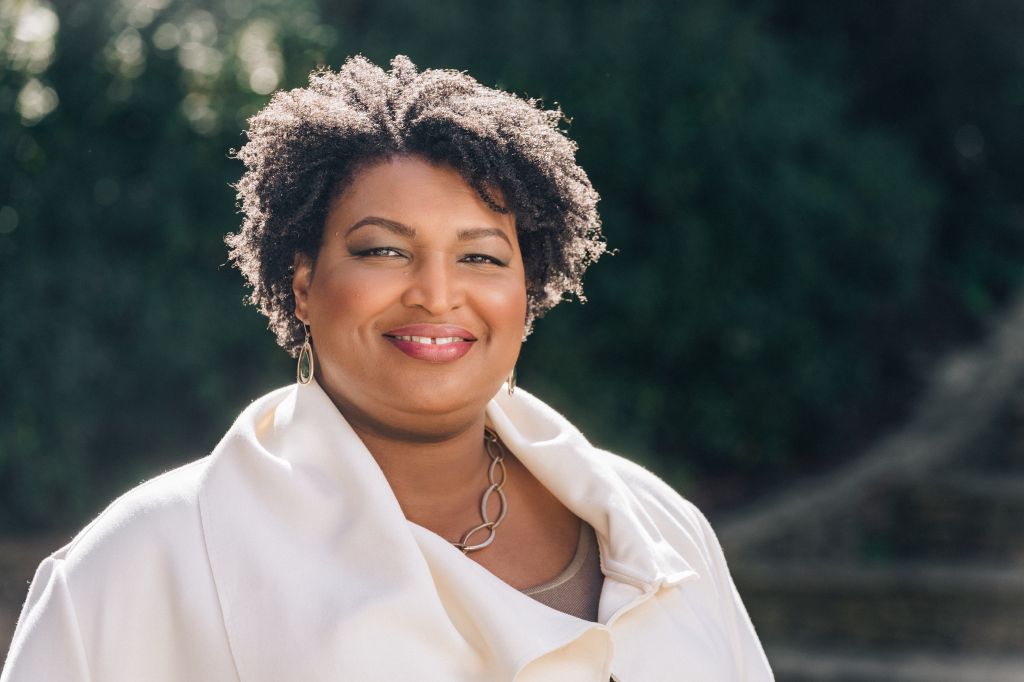Women’s History Month: Honoring The Contributions Of Black Women In The Fight For Social Justice

Source: Bettmann / Getty
Black women have been standing at the front of the social justice movement for decades, from the civil rights movement to the ongoing fight for women’s equality.
Black women have fearlessly raised their voices and put their lives on the line to build a bright future for the next generation of changemakers and leaders. Despite facing multiple forms of oppression and marginalization, Black women have led and participated in some of the most historic movements for liberation and justice.
As we celebrate Women’s History Month in 2024, let’s remember some of the women who have led the way in the fight for social justice.
Angela Davis

Source: Janet Fries / Getty
Look no further than Angela Davis, a scholar, activist and author, who has been an influential figure in the social justice movement for over five decades.
Born in Birmingham, Alabama in 1944, Davis grew up in a family of civil rights activists and experienced racism and segregation firsthand. She became involved in political activism while attending college in the 1960s and was a member of the Black Panther Party and the Communist Party.
Davis was also involved in the Civil Rights Movement, the Black Power Movement and was a leader in the fight against racism, sexism and economic injustice. She is perhaps best known for her advocacy work against mass incarceration and her calls for prison abolition.
The social justice titan has written several books on race, gender and activism, including Women, Race, and Class and Are Prisons Obsolete?
Davis has also been the subject of controversy throughout her career. In 1970, she was charged with conspiracy in connection to a shootout that occurred in a California courtroom, according to History. She was accused of supplying weapons to Jonathan Jackson, who ran into the courtroom and freed several inmates during the incident.
After a highly publicized trial, she was acquitted of all charges. Davis continues to be a leading voice in the fight for social justice today and has received numerous awards and honors for her activism and scholarship.
Audre Lorde

Source: Jackson State University / Getty
Audley “Queen Mother” Moore (1898-1997) was an African American civil rights activist and Pan-Africanist. Born in New Iberia, Louisiana, Moore moved to Harlem in the 1920s, where she became involved in various political and social justice organizations.
Moore is perhaps best known for her advocacy of reparations for slavery. In 1957, she founded the Universal Association of Ethiopian Women, which was dedicated to fighting for the rights of African people and seeking reparations for the transatlantic slave trade. She also played a key role in the formation of the Republic of New Afrika, which sought to establish an independent Black nation in the southeastern United States.
Moore was a powerful orator and organizer, and she continued to be active in the struggle for civil rights and Black liberation throughout her life. She was known as the “Queen Mother” by many in the African American community, a title that recognized her leadership and wisdom.
Lorde was one of the founding members of the Women’s Coalition of St. Croix and also served as the Poet Laureate of New York State. She wrote several books, including Sister Outsider and Zami: A New Spelling of My Name. Lorde’s work continues to inspire activists and writers around the world.
Fannie Lou Hamer

Source: Bettmann / Getty
Fannie Lou Hamer was a civil rights activist and leader in the fight for voting rights for Black Americans. She was a member of the Student Nonviolent Coordinating Committee (SNCC), a student-led organization that spearheaded some of the most iconic sit-ins at segregated lunch counters across the South. The SNCC played a critical role in fighting back against segregation during the civil rights movement.
Hamer worked tirelessly to register Black voters in Mississippi, despite facing violence and intimidation. Throughout her career, she continuously spoke out against racism and oppression. She is perhaps best known for her powerful testimony at the 1964 Democratic National Convention, where she gave a historic speech about the injustices faced by Black Americans in the South. She was also a vocal opponent of the Vietnam War.
Life changed drastically for Hamer after she was brutalized in a Montgomery Jail in 1963. While she sustained permanent injury from the ruthless beating, the activist used the challenging experience as fuel to accelerate her civil rights work. In addition to her work with the SNCC, the social justice titan co-founded the Mississippi Freedom Democratic Party, which challenged pro-segregation politicians across the south. She also ran for Congress, according to PBS.
“Sometimes it seems like to tell the truth today is to run the risk of being killed. But if I fall, I’ll fall five feet four inches forward in the fight for freedom. I’m not backing off,” Hamer once said during a powerful speech.
Hamer died in 1977, but her legacy continues to inspire activists today. Her fearless leadership paved the way for future generations of Black women in the fight for civil rights.
SEE ALSO:
Women’s History Month: The Unique Challenges Faced By Black Women In The Fight For Equality
Black Women Deserve A Soft Life, And Systemic Racism Sometimes Makes That Unattainable
The post Women’s History Month: Honoring The Contributions Of Black Women In The Fight For Social Justice appeared first on NewsOne.





